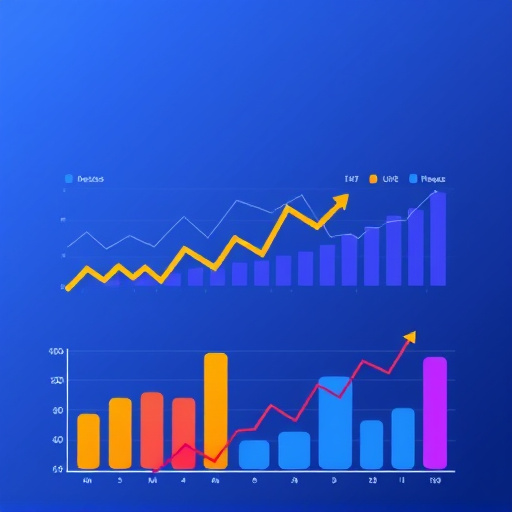In competitive professional website design, Technical SEO is vital for boosting online visibility and performance. By optimizing elements like site speed, mobile-friendliness, schema markup, and HTTPS security, search engines can effectively crawl and index web pages, leading to higher rankings. For local businesses, integrating local SEO strategies into these technical foundations enhances local query results like "web design near me," driving relevant traffic and potential customers. Seamless integration by professional designers or agencies yields increased visibility, better user experience, and higher conversions.
In today’s digital landscape, a professionally designed website is not just an online presence but a business card. However, ensuring its visibility and performance requires a solid understanding of Technical SEO. This article delves into the foundational aspects of Technical SEO tailored for professional websites. We explore essential elements from site structure to indexing, offering best practices for developers to optimize web design for search engines. By implementing these strategies, professionals can elevate their online presence and attract more visitors.
- Understanding Technical SEO Basics for Professional Websites
- Essential Elements of Technical SEO in Website Design
- Best Practices for Implementing Technical SEO in Professional Web Development
Understanding Technical SEO Basics for Professional Websites

In the realm of professional website design, Technical SEO foundations are the unsung heroes that significantly impact online visibility and performance. For businesses aiming to thrive in today’s digital landscape, understanding and implementing basic technical SEO practices is crucial. This involves optimizing critical elements like site speed, mobile-friendliness, schema markup, and secure (HTTPS) protocols. These fundamentals ensure search engines can efficiently crawl and index web pages, ultimately enhancing a website’s chances of ranking higher on search results.
For businesses focusing on local search optimization, especially those with physical locations, integrating local SEO strategies into their technical foundation is game-changing. Implementing structured data markup, claiming and optimizing Google Business Profiles (formerly Google My Business), and ensuring consistent NAP (Name, Address, Phone number) citations across the web are key steps. These measures significantly boost online visibility for “web design near me” or “local SEO Fort Lauderdale” queries, driving more targeted traffic and potential customers to local businesses.
Essential Elements of Technical SEO in Website Design

In the realm of professional website design, Technical SEO is the unsung hero that ensures your online presence isn’t just visually appealing but also search engine-friendly. It’s about setting up a website in a way that makes it easily crawlable and indexable by search engines like Google, Bing, or Yahoo. Essential elements include optimizing website structure for better navigation, using header tags (H1, H2, etc.) effectively to organize content, and ensuring proper use of alt tags for images to boost accessibility and SEO. Moreover, implementing structured data markup can enhance how search engines understand your site’s content, potentially leading to richer snippets in results pages.
For a robust Technical SEO strategy in professional website design, focus on streamlining website speed optimization to reduce bounce rates and improve user experience. A fast-loading website signals to search engines that it’s high-quality and worth ranking higher. Additionally, implementing responsive design for mobile-first indexing is crucial, given the vast number of users accessing websites through smartphones and tablets. Remember, a top-notch website designer in Davie FL or a digital marketing agency in Dallas can play a pivotal role in integrating these Technical SEO aspects seamlessly into your professional website design, driving better online visibility and conversions.
Best Practices for Implementing Technical SEO in Professional Web Development

In the realm of professional website design, integrating Technical SEO best practices is paramount for enhancing online visibility and user experience. Website developers must ensure proper structuring of URLs, utilizing semantic HTML markup, and implementing structured data to guide search engines in understanding content effectively. Optimizing page load speeds by compressing media and leveraging browser caching is another critical aspect, as fast-loading sites not only improve SEO rankings but also elevate user satisfaction.
Additionally, professional web developers should focus on creating mobile-friendly designs, as mobile usability signals are significant factors in organic SEO services. Implementing responsive design ensures that the website adapts seamlessly across various devices and screen sizes. Furthermore, setting up a robust site architecture with a logical hierarchy of pages and interlinking relevant content helps search engines crawl and index the site efficiently. These strategies, coupled with custom website design tailored to individual business needs, contribute to a strong online presence, driving organic traffic and boosting the overall digital footprint for businesses seeking SEO services near me.
In the realm of professional website design, mastering Technical SEO is no longer an option but a necessity. By understanding and implementing essential elements such as site architecture, schema markup, and mobile optimization, developers can significantly enhance search engine visibility and user experience. Following best practices, including regular security updates and efficient URL structures, ensures that technical foundations remain robust and adaptable to the ever-evolving digital landscape. Investing in these SEO foundations is pivotal for professional websites to stand out, attract organic traffic, and ultimately drive business success.














